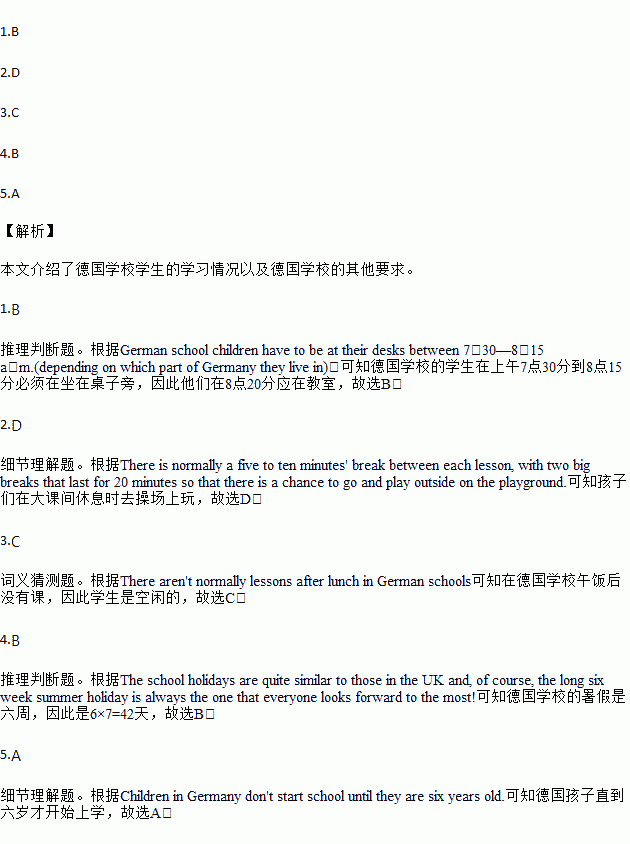题目内容
Just like you, children in Germany have to go to school every day. One big difference, however, is the time they have to be at school. German school children have to be at their desks between 7:30—8:15 a.m.(depending on which part of Germany they live in).

There are usually five or six lessons each day. School subjects are pretty similar to those you might have (maths, science, music, art, P.E., etc). There is normally a five to ten minutes' break between each lesson, with two big breaks that last for 20 minutes so that there is a chance to go and play outside on the playground.
There aren't normally lessons after lunch in German schools—imagine that! In fact, in the past, many schools did not offer lunch at all, but nowadays, there are usually afternoon clubs, homework workshops and activities to keep pupils occupied until their parents get home from work.
German school children get 15 weeks of holiday each year. The school holidays are quite similar to those in the UK and, of course, the long six week summer holiday is always the one that everyone looks forward to the most!
Did you know...?
•Children in Germany don't start school until they are six years old.
•Most German schools don't have a school uniform.
•German children go to primary school for four years.
•Each lesson lasts for 45 minutes.
•School lessons usually finish before lunch. In the afternoon, pupils can either go home, or stay at school and take part in clubs or do homework.
1.German school children are in the classroom at________.
A. 7:20 a.m. B. 8:30 a.m.
C. 3:00 p.m. D. 4:15 p.m.
2.What do children do in the big break?
A. Learn at their desks.
B. Join different clubs.
C. Do homework.
D. Play on the playground.
3.The underlined word “occupied” in the passage probably means ________.
A. happy B. free
C. busy D. quiet
4.In Germany, the summer school holiday lasts ________.
A. a month B. 42 days
C. 15 weeks D. two months
5.Which of the following is true about German school children?
A. They start school at the age of six.
B. They have to wear a school uniform.
C. They go to primary school for five years.
D. They have a lesson in the afternoon.

